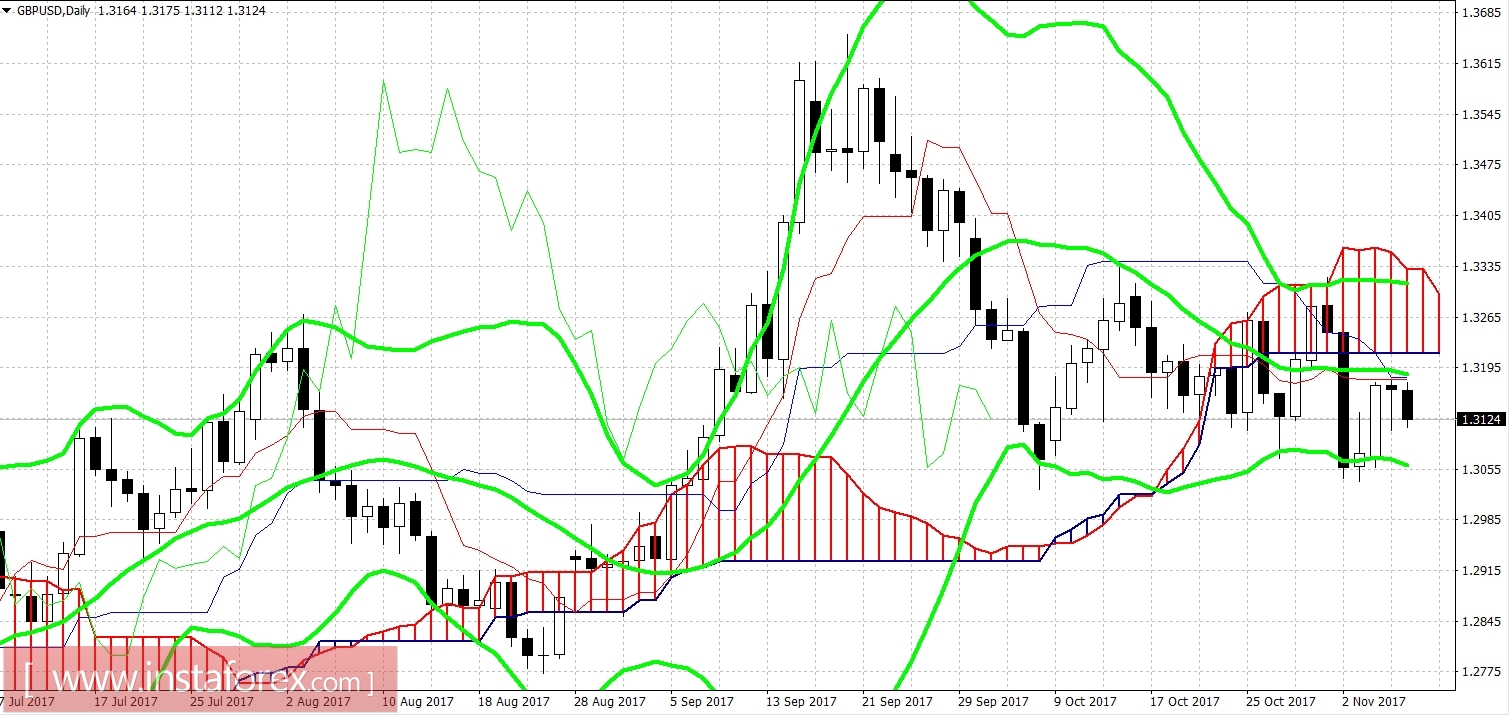Today, the pound/dollar pair anticipates an important event: representatives of the European Union will publish preliminary conditions of the transition period that will come before the final exit of Britain from the EU. After the November meeting of the Bank of England, the topic of Brexit again came to under the spotlight. Conflicting rumors around the negotiation process make investors nervous, and the pound can not determine the direction of its movement. There are too many unresolved issues: Brussels and London have been unable to unravel the tangle of legal and economic issues for almost half a year.
In the British and European press, various scenarios for further action are being reported. Sometimes they contradict each other, although all the options are voiced by "competent sources close to the negotiation process". For example, the newspaper The Guardian in late October reported that Europe will offer Theresa May an option to shorten the transition period from two years to 20 months - in other words, Britain will need to leave all legal institutions of the EU by December 31, 2020.
Other sources, by contrast, suggest that the parties can extend the two-year transition period if they fail to agree on a trade deal. And although British politicians now boldly declare about the possibility of Britain withdrawing from the EU unilaterally, many experts warn of the unpredictable consequences of such a step. Therefore, the rejection of the deal is the last and most undesirable outcome for both sides.
One of the options for a compromise, the solution is the so-called "Norwegian" way. Norway is not a member of the European Union, but is a member of the European Free Trade Association, thus being part of the European Economic Area. Britain can have a temporary membership in the EEA, along the way, preparing a normative and economic ground for a final exit from the EU.
But this option has several significant drawbacks. First, within the EEA, the British will have to follow the "rules of the game", not being able to influence them. Secondly, Theresa May has repeatedly promised that business will not have to adapt to the new conditions several times. Thirdly, the very idea of membership in the association will be perceived disapprovingly in Britain - both by conservative politicians and ordinary citizens, who supported the country's exit from the European Union. Nevertheless, if on the other side of the scale there are grave consequences of a one-way exit, this scenario can come to realization.
Still, the basic goal of the negotiating process is now to conclude a deal. The next deadline is scheduled for December, but experts are extremely skeptical of such bold timeframes. Too many unresolved issues remain. Brussels insists that throughout the transition period (however long it takes), Britain should be in the legal and regulatory framework of the European Union - including under the jurisdiction of the European Court. This option is rejected by the British side, since in this case the country will be under the "legal protectorate" of Europe. At the moment there is no compromise solution in this regard.
Also, the question of how to deal with third countries in the context of trade relations between London and Brussels remains unanswered. Will Britain automatically renew the agreements concluded earlier, taking into account the fact that it will not be a member of the European Union by then? Experts unanimously affirm that representatives of third world countries will directly oppose such a scenario.
In addition to the above problems, the issue of annual plans for the EU budget remains unresolved. If Britain during the transition period does not have a "vote", but will have to obey, what is the mechanism of influence? For example, in terms of granting budgetary benefits?
This is not a complete list of complex and inconvenient issues that the negotiators could not resolve for five months. In my opinion, the stalemate will continue in December: Brussels does not intend to back down from its interests (the stance of Europeans is only getting tougher lately), and the British will stand on their own for political reasons (as long as the conservatives are in power, naturally). Theresa May has already been accused of "excessive flexibility", so it will be very difficult for the parties to find a mutually beneficial compromise.
Such uncertainty will also influence the resolve of the English regulator. At it stated in the last meeting, the Bank of England announced that it will very gradually tighten monetary policy - roughly the regulator will double the rate until 2020. The very gradual pace disappointed the market, but if Brussels and London never find a common language, the current rate may remain for a longer period.






















